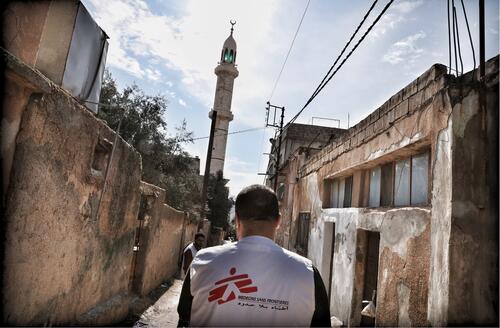Refugees endure extremely limited access to healthcare in Jordan. In addition, the COVID-19 pandemic and the subsequent economic downturn in the country have significantly affected Jordanians and refugees alike.
Our reconstructive surgery hospital in Amman treats war-wounded patients and victims of violence coming from countries such as Palestine, Syria, Iraq and Yemen. The hospital provides life-changing reconstructive surgery for those inflicted with burns, gun shots and other war injuries, while also providing physiotherapy and mental health support.
In addition, our teams provide medical consultations for non-communicable diseases (NCD) in Irbid and Ramtha, northern Jordan. We also deliver NCD medication to people on a daily basis through home visits, while mental health consultations are carried out in-clinic or remotely.
Our activities in 2022 in Jordan
Data and information from the International Activity Report 2022.
241
241
14.8 M€
14.8M
2006
2006


34,500
34,5
950
95
560
56
- Try a different country, year, format, or topic.
- Clear one or more filters




